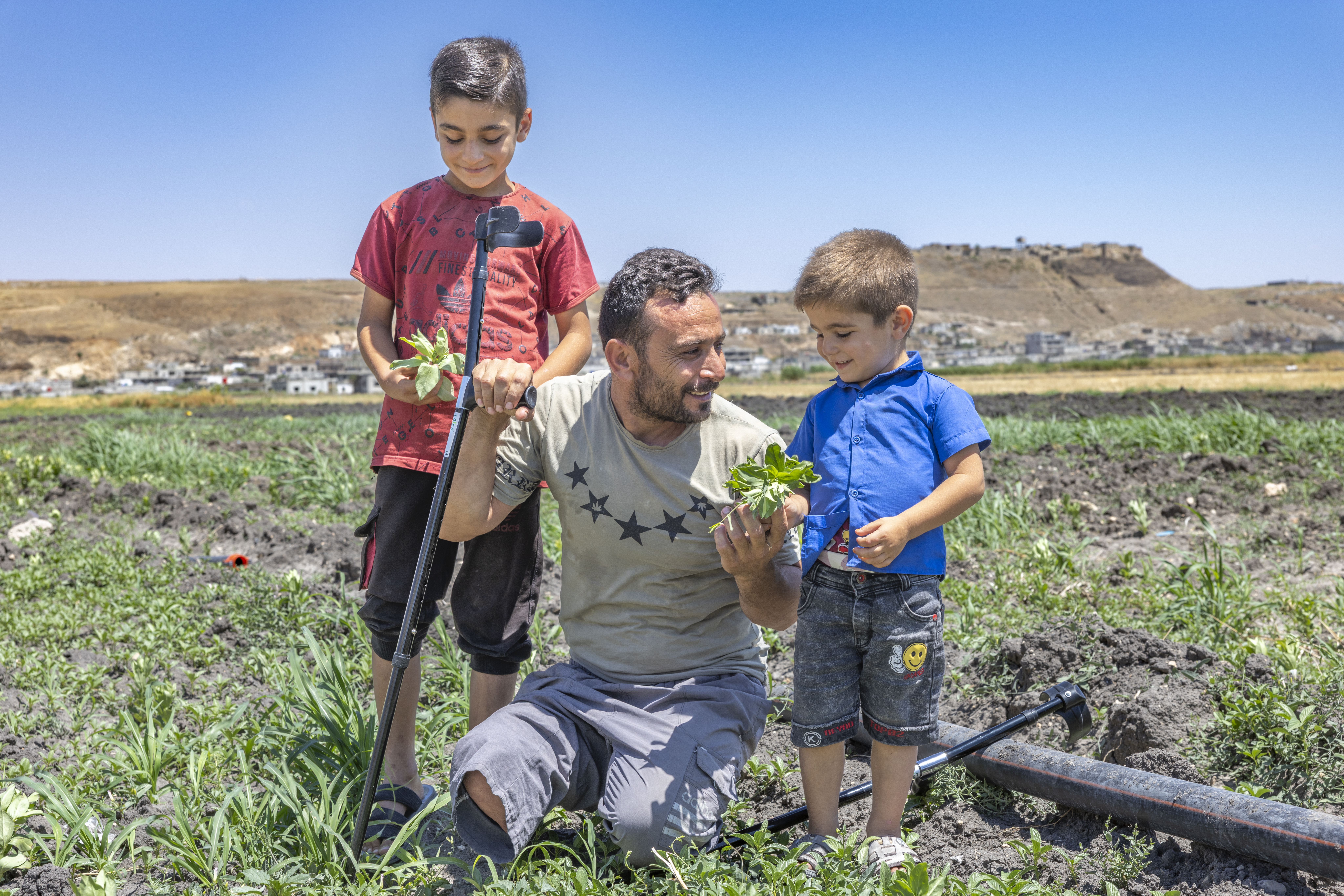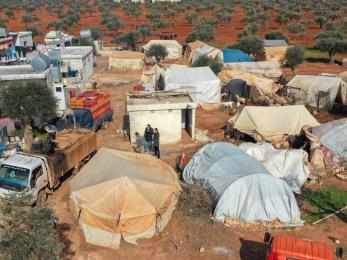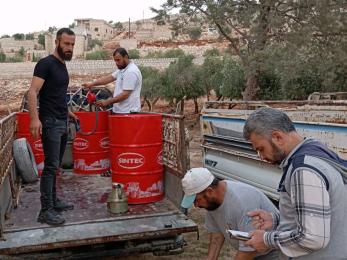Building strength within a community of Syrian refugees
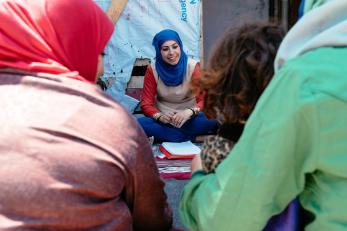
Raised tensions and widespread devastation mark the end of the ninth year of crisis in Syria. While a ceasefire has been called, the recent conflict in Idlib caused catastrophic human suffering and created an unprecedented level of need.
Nearly one million people have been forced to flee to the border, the majority of whom have been displaced several times already. Nearly 170,000 people are currently facing winter conditions without shelter or reliable heating. Get the facts about the Syria crisis ▸
For the people who have already fled Syria, their journeys continue. A ramshackle cinder block structure in Lebanon serves as housing for refugee families. Here, a group of women regularly meet to support each other and strengthen their resolve to make a better future for themselves and their families.
Suzanne, 33, leads the group.
Suzanne is a coach for a Mercy Corps programme designed to help families in struggling refugee communities in Lebanon. In the group, she creates a safe space for Syrian women to share their challenges and learn the skills to cope, with advice on managing behavioural issues and helping their children navigate the changes affecting their lives.
There’s a lot to talk about.
“There is a big problem of unemployment, and therefore poverty … They have the responsibilities of cooking, cleaning, taking care of the children, and also sometimes working from home,” Suzanne says.
“Let's not forget the pressures that these women have sometimes will take a toll on their children,” Suzanne adds. “These sessions are also basically a place where they can let out their stress, talk, and open their hearts because most of the time they don't have the space to do that.”
And Suzanne would know, because she is also a mother — and a Syrian refugee.
Adjusting to refugee life
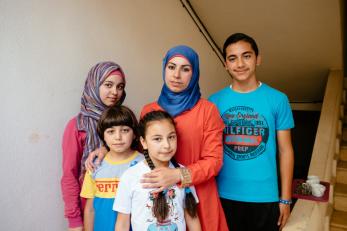
Suzanne and her family were living in Daraa in 2011, the site of the first protests of the Arab Spring in Syria. She remembers shelling and armed men going house-to-house. She also remembers how scared her four young children were.
When it became too dangerous to send the children to school, they knew they had to flee. She and her family left for Lebanon, where distant relatives living in and around Beirut could help them find shelter. The family was in the first wave of refugees from Syria, and it was unclear how to set up a life in this new country.
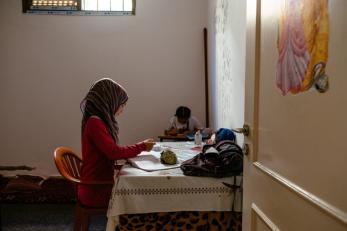
The transition was difficult for the children. Rayan, 11 at the time, had always been an A student. In Lebanon, she struggled because of the new curriculum. Lessons were taught not only in Arabic, but in French, which she didn’t speak. Additionally, she had missed almost a year of school as the family moved around Syria and Lebanon.
Suzanne says Rayan would cry in frustration at times, “because she couldn't understand. I told her, ‘If you want to learn French, even though it's hard, you can do it. Nothing is impossible, you just have to work a bit harder to achieve what you want.’”
Suzanne knows about child development and how to communicate with children from when she was a kindergarten teacher in Syria. Unable to teach in Lebanon, she started helping a neighbour with her two disabled children.
Leaders of a local organisation that partners with Mercy Corps got to know Suzanne through her work with those two girls. They recommended her as a coach for the women’s groups.
Why investing in changemakers makes sense
These days in the settlement, Suzanne teaches the mothers about positive parenting. In their next meeting, the group will focus on issues families with older children face, such as child labour, gender-based violence, and early marriage.
Mercy Corps works in 35 villages here, giving nearly 40,000 kids and parents information and activities that help them build the strength to overcome the challenges of displacement, trauma and poverty.
We help refugees and displaced people in more than 20 countries around the world, including Lebanon. Our work helps refugees meet a variety of their urgent needs for food, clean water and hygiene and build the foundation for a stronger future.
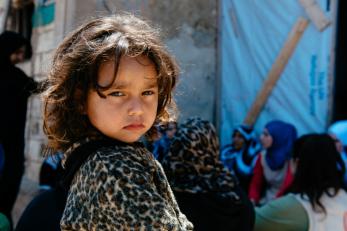
Mercy Corps does this by learning who the changemakers are in each community and starting there. Changemakers like Suzanne.
As Suzanne learned more about positive parenting from our curriculum, her own parenting style changed — and her children started behaving for the better. “When I give these sessions, the women are taking them very, very positively and I feel like they're going to start implementing them.” Suzanne says. “I know it's going to make a difference, because it made a difference with my children as well.”
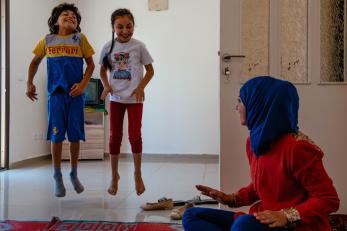
Today, Suzanne and her family are able to rent a small apartment. Rayan studies for the national exam all students in Lebanon take before they enter high school. She and her siblings are back at the top of their classes.
Suzanne says finances are tight for her family, and she can’t afford to give her kids many of the things they want. But she tells her children they are lucky compared to so many.
“We are here in Lebanon, and we rent a house. Some children are still stuck in Syria. Some are living in settlements. Some children lost family members.”
Every refugee struggles with loss. In a war as cruel as Syria’s, for every horrible story, there’s someone who has it worse. But among the women in the informal settlements, Suzanne knows she can be a symbol that life can also be better.
More than that, she can guide them there.
